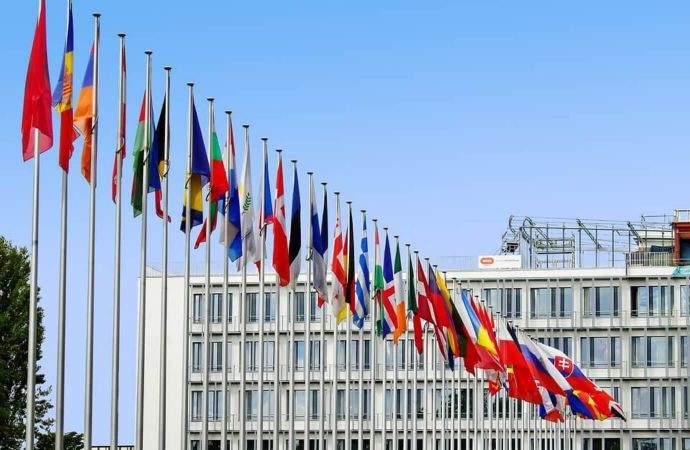EU turns its attention to 2020 f-gas bans
March 22, 2019
Bans on using f-gases with certain GWP amounts in certain types of refrigeration and air-conditioning equipment are set to come into force in the EU next year.

Europe’s HVAC&R industry will this year strive to meet HFC bans that come into force on 1 January 2020 as the implementation of the European Union’s F-Gas Regulation gathers speed.
As of 2020, the EU F-Gas Regulation bans the placing on the market across the bloc of moveable room air conditioners and hermetically sealed commercial refrigeration equipment that uses refrigerants whose GWP is over 150. It also bans the use of HFCs whose GWP is over 2,500 in stationary refrigeration equipment (except that which cools to below -50°C).
Marco Buoni, president of the Air Conditioning and Refrigeration European Association (AREA), told this website, “with bans coming up in 2020, we must continue our efforts and count on further support from public authorities to alleviate these obstacles”.
“From what we can observe, significant progress has been made in a number of market segments [particularly in commercial refrigeration, where many retailers are using hydrocarbons and CO2 in new equipment] but barriers still exist in particular related to building codes preventing or restricting the use of flammable refrigerants,” he added.
Francesco Scuderi, deputy secretary-general of trade association Eurovent, is also hopeful that industry can meet these bans. Scuderi argues that it met “the steepest step” in the EU HFC phasedown in 2017 and 2018, when the overall allocated quota of HFCs on the market was reduced from 93% to only 63%.
“The HVAC&R manufacturers have their R&D units working very hard in order to be ready for the 2020 bans,” Scuderi said. “This ban will also provide an additional boost in the development of new products, new F Gas-ready products.”
Brexit: Deal or no deal, F Gas will continue
The UK will continue to implement the EU F-Gas Regulation irrespective of whether the government can agree a deal with the EU to leave the bloc in an orderly fashion on 29 March 2019 (the deadline for preventing a ‘no deal’ Brexit), the government maintains.
In September 2018, the UK government confirmed that in the event of a ‘no deal’ exit from the European Union, it would adopt the EU F-Gas Regulation – phasing down HFCs by 79% by 2030 (compared to 2009-12 levels) and adopting the bloc’s quota method and schedule – but administer it through the UK’s Environmental Agency (EA).
Alongside the EU, the UK’s Department for Environment, Food & Rural Affairs (DEFRA) also confirmed on 14 December 2018 that it would continue to follow the EU quota schedule and bans.
What about non-EU countries?
According to European Environment Agency (EEA), the EU (28 countries, counting the UK) is ahead of the Kigali Amendment to the Montreal Protocol, under which the first phase-down steps began on 1 January 2019 with a 10% reduction of HFCs (compared to the 2011-2013 baseline).
Iceland, Switzerland and Norway, non-EU countries that are in the Schengen area of free movement, have adopted their own national laws in accordance with the EU F-Gas Regulation, also putting them ahead of Kigali.
“To approach the challenge to phase out the use of HFCs, [Iceland’s] 2010 Regulation on fluorinated greenhouse gases has been amended in accordance with [the new EU F-Gas Regulation on HFCs],” Bergþóra Njála Guðmundsdóttir, head of information at the Iceland Ministry for the Environment and Natural Resources, told this website. “With the Amendment, a licencing system is established regarding the import of HFCs.”
Iceland is yet to ratify Kigali, but the country is a signatory to the agreement, Guðmundsdóttir described ratification as “a priority” and said the process was on-going. “It is foreseen to be finalised in 2019,” she added.
Switzerland, in April 2018, put its own HFC phase-down legislation in line with the dates of the bans that come into force under the EU’s regulation. The country has ratified Kigali.
Similarly, Norway is following the EU regulation and has ratified Kigali. Oslo placed its own spin on the regulation with a tax on HFCs and refund scheme for destroying HFCs for companies.


